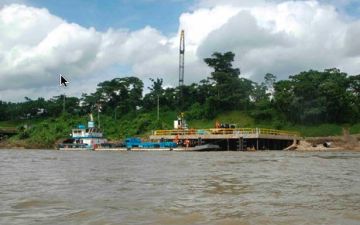Arrival in Colombia - 13 June 07
13 June, 2007
Four hours after leaving New York on the Avianca flight for Bogota, the Caribbean coast of Colombia appeared, a electric green arc of banana plantations and thick jungle. It was strange to fly south instead toward the blood-charged cauldron of the Middle East where I have spent the last four years covering the conflict in Iraq. Colombia is a different story, one that is much closer to home.

 Hugo Chávez's sweeping election win may be read as a simple mandate for the demagogic Venezuelan leader to push on with his plans to transform his country with what he calls "21st-century socialism," designed to empower the impoverished masses with state-controlled oil profits, as described in my article last week. But for the region and the world, his victory could mean much more.
Hugo Chávez's sweeping election win may be read as a simple mandate for the demagogic Venezuelan leader to push on with his plans to transform his country with what he calls "21st-century socialism," designed to empower the impoverished masses with state-controlled oil profits, as described in my article last week. But for the region and the world, his victory could mean much more.



 A new president was sworn into office today in Mexico, after much uncertainty after a disputed election. On Sunday, President Hugo Chavez is running for re-election in Venezuela. Reviled in the United States, but in his own country Chavez arouses passion in supporters as well as opponents. What are the chances of the man who called President Bush "the devil" in a speech to the United Nation?
A new president was sworn into office today in Mexico, after much uncertainty after a disputed election. On Sunday, President Hugo Chavez is running for re-election in Venezuela. Reviled in the United States, but in his own country Chavez arouses passion in supporters as well as opponents. What are the chances of the man who called President Bush "the devil" in a speech to the United Nation?
